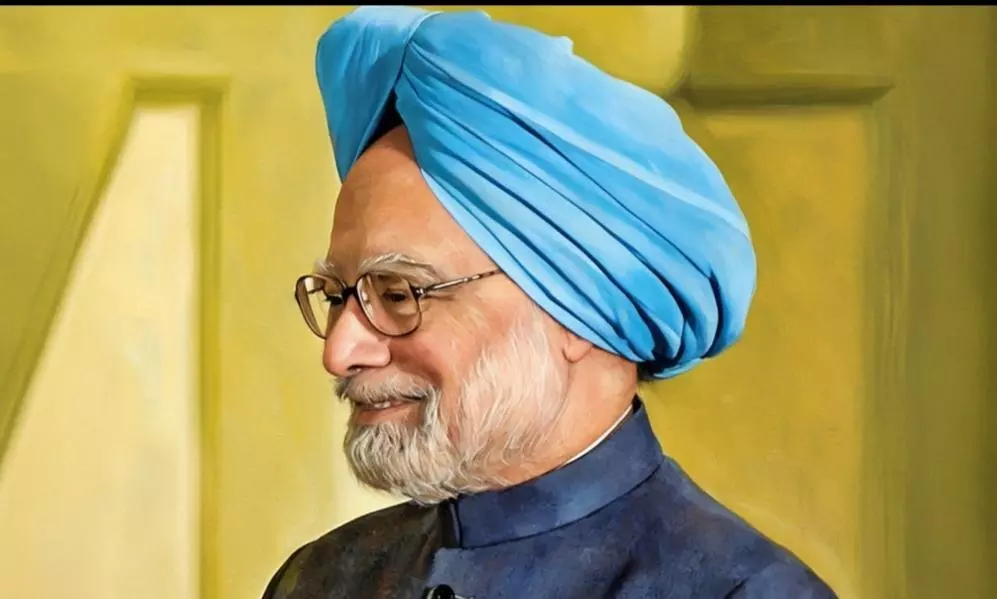Manmohan Singh obit: Father of liberalisation, MGNREGA, and Aadhaar
The former PM's leadership style was marked by humility and a preference for consensus, which stood in stark contrast to the populism of the time


When India stood on the brink of an economic collapse in 1991, with barely two weeks of foreign reserves left, a bespectacled economist named Manmohan Singh rose to address Parliament as the newly appointed Finance Minister.
Delivering his historic budget speech, which unshackled the economy, he said: "Sir, I do not minimise the difficulties that lie ahead on the long and arduous journey on which we have embarked. But as Victor Hugo once said, 'no power on earth can stop an idea whose time has come.' I suggest to this august House that the emergence of India as a major economic power in the world happens to be one such idea. Let the whole world hear it loud and clear. India is now wide awake. We shall prevail. We shall overcome."
That moment marked the beginning of India’s economic liberalisation, a transformation that would steer the country away from financial ruin and toward its destiny as a global economic powerhouse. It was also a defining chapter in the life of Manmohan Singh, who, with remarkable resolve and intellect, chose the harder path for the greater good.
India's 13th PM
Dr. Singh, aged 92, who passed away on Thursday night, leaves behind a lasting legacy as an economist, policymaker, and the country’s 13th Prime Minister, remembered for steering the nation through critical junctures of its history with humility, intellect, and unwavering dedication.
Also Read: Three decades of economic reforms with Manmohan Singh's Liberalisation
Born on September 26, 1932, in Gah (now in Pakistan), Singh's early life was shaped by the trauma of Partition. Despite these challenges, his exceptional academic brilliance shone through.
He graduated from Panjab University, pursued higher studies at the University of Cambridge, and later earned a DPhil in Economics from the University of Oxford. His academic pursuits laid the foundation for a career that would profoundly impact India's trajectory.
Illustrious tenure as PM
In 2004, Singh took on the mantle of Prime Minister, leading the United Progressive Alliance (UPA) government for a decade. His tenure was marked by significant achievements, including signing the Indo-US Civil Nuclear Agreement, implementing the Mahatma Gandhi National Rural Employment Guarantee Act (MGNREGA), and steps toward financial inclusion.
Under his stewardship, India witnessed unprecedented economic growth, rising global stature, and landmark social welfare initiatives. Known as an economist among politicians and a politician among economists, Singh’s ability to navigate the political process was outstanding in the way he negotiated the landmark Indo-US civil nuclear deal, drawing effusive praise from US President George Bush, who called him a “good man and I look forward to doing business with you.”
Also Read: Pranab should've been PM, Manmohan President in 2012: Aiyar in new book
Second stint under fire
Singh was not without his critics. His administration faced challenges, including corruption scandals and policy inertia in his second term, which dented his government’s credibility. Yet, even his detractors could not ignore his integrity, calm demeanour, and commitment to the nation’s progress.
A devout family man, he is survived by his wife, Gursharan Kaur, and their three daughters. Known for his reticent nature, his rare public speeches carried the weight of thoughtfulness and sincerity, resonating with millions.
Singh's quiet strength, humility, and vision epitomised the best of Indian democracy. Despite challenges and criticisms, including corruption scandals during his second term as Prime Minister, Singh remained a figure of personal integrity and intellectual depth.
His leadership style, marked by humility and a preference for consensus, stood in stark contrast to the populism of the time.
These are among his key achievements:
• Economic liberalisation (1991): As Finance Minister, Singh introduced sweeping reforms to dismantle the license raj, open India’s economy to global markets, and stabilise its finances. These policies sparked unprecedented economic growth and ushered India into the modern global economy.
• Pioneering Social Welfare Programs: As Prime Minister, he oversaw landmark initiatives such as the Mahatma Gandhi National Rural Employment Guarantee Act (MGNREGA), which provided employment and financial security to millions in rural India, and the Right to Information Act, empowering citizens with transparency in governance.
• Indo-US Civil Nuclear Agreement (2008): Singh played a pivotal role in this landmark deal, which ended India’s nuclear isolation and solidified its global standing as a responsible nuclear power.
• Economic Growth and Stability: Under his leadership, India experienced its fastest economic growth, with GDP growth rates often exceeding 8 per cent during his first term. He fostered fiscal discipline while prioritising investment in infrastructure and technology.
• Steps toward financial inclusion: His government launched initiatives like Aadhaar, a biometric-based identification system, to streamline welfare distribution and promote inclusivity.
• Global leadership: Singh was instrumental in elevating India’s profile on the world stage, engaging with G20 nations, and advocating for India’s place in global decision-making forums. His statesmanship earned respect from global leaders and institutions.

